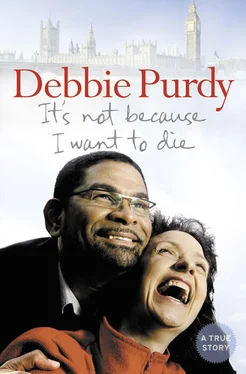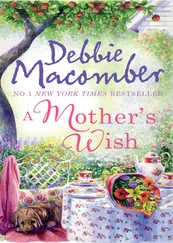Peter arrived and was able to translate for us. Although he’d grown up in Germany, he and his mother were Russian, and Omar spoke Russian, so they could communicate much more easily than Omar and I could. It seems Omar had got to the airport first thing that morning and had met every single incoming flight until I arrived after lunch.
I hugged him again, overwhelmed by my emotions.
I’d been planning to stay with Peter and his partner for a while. I wasn’t sure how much work I’d be able to do, but staying with Peter would make it easier to try. I figured I’d stay in Singapore long enough to pick up my things, and maybe enjoy the city a little before having to make proper plans about my life! The immediate plan was that Peter would drive me to my flat to pick up my stuff, then take me back to his place.
When this was translated for Omar, he said not to be ridiculous. He insisted that I was to move in with him and the band. He was squeezing my hand as he spoke and looking very serious.
‘ Vente a vivir con nosotros – conmigo,’ he insisted.
I thought about it for two seconds, then smiled at him and said, ‘OK!’
Peter grinned.
We picked up my belongings and drove to Jalan Lada Puteh, or Peppertree Lane, where Omar lived in a house with the three girls and six boys who were members of the band.
My parachute had opened. Omar was going to take the weight.
Chapter 4 My Beautiful Career
After leaving school I led a nomadic lifestyle, never staying in one place for long. My short attention span and love of adventure meant that once I felt I’d experienced a situation, I was ready to move on. This quality used to get me into trouble back at school and college, but after the MS diagnosis I felt grateful for it. Sometimes when fear and grief for my lost life got too much, I would hide in bed, pull the covers right up over my head and cry. I’d sob my heart out, feeling desperate and helpless, but then I’d hear a story on the News Channel (it’s been permanently on in my bedroom for years, only turned off at night if Omar is at home) that would make me gulp back the tears. It’s hard to feel devastated by your problems with walking when you can see the effects of the tsunami in Southeast Asia, people caught in the wreckage of Hurricane Katrina or bombs dropping on Gaza. The footage of those disasters showed people in unimaginable situations dealing with their lives as best they could, and I guess it put my problems into perspective. I could turn on the tap and get fresh, clean water to take my prescription painkillers, just phone a friend for a chat or use the computer to contact friends further afield. I will always need to mourn the ‘me’ that I’ve lost, but the desperate face of a mum who has lost her child to the war in Iraq makes me so grateful for the ‘me’ I’ve still got and not want to miss out on the things I can do.
My schoolteachers always used to complain that I didn’t apply myself, and none of them would have been surprised that by the age of 30 I’d done umpteen different jobs but never had what you might call a ‘proper career’. I took A levels in maths, economics, government and politics, and sociology, because since the age of 13 I had wanted to be prime minister. (I took maths because I was good at it and figured it would be useful if, as prime minister, I could at least balance a chequebook.) There were always lively political discussions at the dinner table at home, and with the arrogance of youth I thought I could solve the world’s problems by making the political system more fair and inclusive. I joined the Liberal Party and committed a lot of time and energy to the causes I believed would improve the world – as well as the ones that looked most fun.
I spent a couple of years knocking on doors campaigning for local councillors, and I learned wheelchair basketball and helped out at Sports Association for the Disabled. I planned to change the world by improving my corner of it. However, the more I learned about society, the more I realised that tweaking the existing status quo would be harder and less effective than building a new one. I began to read more political literature, and the more I read the more I considered myself a Marxist.
I took two of my A levels at a further-education college in Windsor. I remember my time there mainly for that first parachute jump with the Territorial Army, back in 1981, sparking my lifelong addiction to adrenaline rushes. About fifty of us, male and female, had signed up for the jump. During a couple of days away from college, I thought better of it and returned planning to drop out, but I discovered that of our original fifty, only six remained, all of them boys. That made me the last girl standing and I felt I had to do it as a matter of feminist principle.
I moved to London to do my other two A levels at a college near Old Street, and I lived in a squat – rather a nice squat, an old vicarage – with a fantastic bunch of people: a city stockbroker, a Buddhist with a motley collection of stray cats and, the reason I was there, some Marxist revolutionaries. I learned a lot, not least about choosing the battles that were most important and not being sidetracked by every little injustice you perceive. I went to Kingston Polytechnic to study sociology. Then, after a term and a half, I moved to Birmingham to read humanities (economics, politics and sociology). I made the move to Birmingham because of politics rather than education (although I think my involvement in politics was the best education available). I worked a few nights a week as a nightclub hostess, greeting people at the door and checking they conformed to the dress code (on the way in, anyway), and if we had live bands on, we had to frisk people if they looked suspicious.
In Birmingham, I decided that I wouldn’t graduate. I thought I was learning more from living, arguing and listening than I was from lectures. I bought my first house in Lozells, Birmingham, back in the days of 100 per cent mortgages, when buying was cheaper than renting. My bank manager said I should definitely go for a job selling advertising space for Thomson Directories because I had convinced him to lend me the £11,000 for the house while still a student! (These were the days when houses were homes, not investments.)
Nowadays you need a degree to become a toilet cleaner, but in the 1980s you didn’t, and when a man I met at the club offered me a job selling advertising space it seemed like a good idea. The money was better than a student grant (a historical anachronism), and although I’d had many jobs since the age of 14 – including working in a farm shop, plucking Christmas turkeys, mucking out stables and working as a hospital cleaner – this would be the first real one. It seemed about time I had a job that meant I’d stay clean, warm and dry, and that I needed to dress properly for.
I was something of a fashion victim in those days, but the phases never lasted very long. I was punk for a week or so, but found the look too uncomfortable and got impatient with the amount of time it took to get ready in the morning. For a while I had a short back and sides with tufts of differentcoloured hair – orange and blue and pink – and I’d wear tight little black dresses, making me look like a parakeet.
I started the telesales job in Birmingham, but when some friends were moving to Edinburgh I went too and found a field sales job for the Scotsman. Then, within a year, I got a job with Yellow Pages. I loved the variety of working as a field sales rep: at 9 a.m. I could be at the stylish offices of a multinational corporation, at 10.30 in a draughty barn talking to a farmer about his plant-hire sideline, and at noon I might be at a local tanning salon. I met loads of wonderful people and travelled all over Scotland and the north of England, feeling energised by my life and the people in it. Even so, I still found myself hankering after change.
Читать дальше












